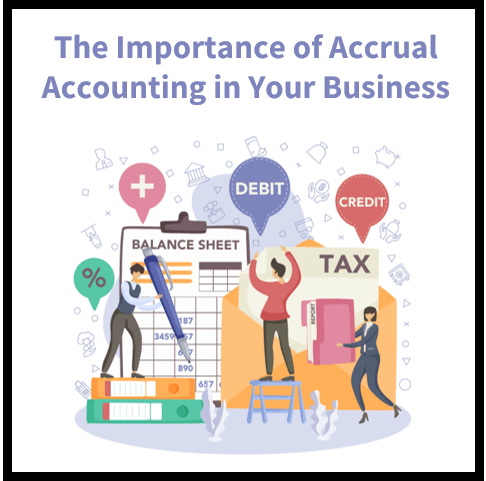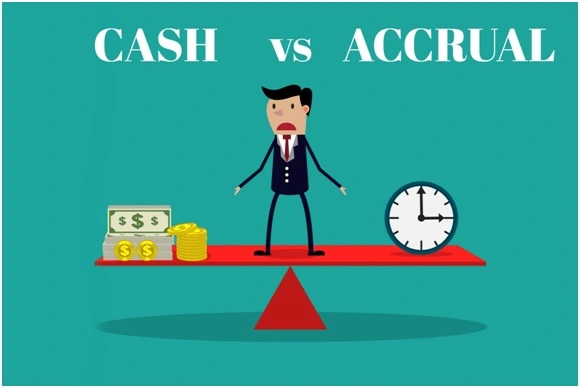Accrual accounting is used to account for assets and liabilities. This type of accounting is more common than you might think, even in smaller businesses and startups. Accrual accounting shows the value of an asset right away, while cash-basis accounting shows the value of a liability immediately. Accrual accounting also makes it easier to keep track of your business’s finances and see at a glance how much money your business has at any given time. Accrual accounting is especially useful for businesses that deal with assets or liabilities that fluctuate in value from day to day or from month to month. Financial statements often aren’t available on a daily basis, so accrual accounting allows you to have your business balance sheet and cash flow statement updated once per quarter instead of once per month or even more frequently than that. While accrual accounting can be helpful in many situations, it can also be challenging if you don’t know what questions to ask beforehand or how best to implement this type of accounting system in your business.
What is accrual accounting?
Accrual accounting is a type of accounting in which assets and liabilities are recorded as they’re earned or incurred, not when cash is received or a bill is mailed. The record of each transaction is called an invoice or an accounting entry. For example, if you buy a computer for your business, then enter it immediately as an asset on your books, then you’re recording the asset with an accounting entry. You’re also recording this transaction as soon as it occurs, not when you get paid or receive the bill. On the other hand, if you swing a deal with a supplier and get paid, but then write the bill right away, that’s cash-basis accounting instead of accrual accounting. Cash-basis accounting treats all transactions as if they happen when cash is received. And since you don’t yet have the computer expense recorded, you’re not yet showing a liability.
Photo Credit: https://www.tgccpa.com/wp-content/uploads/2018/09/Cash-vs-Accrual.jpg
Why is accrual accounting important?
Accrual accounting adds a layer of clarity to your financial reporting. Knowing that your business has $5,000 of cash at the beginning of the month and $15,000 in accounts payable at the end of the month can help you make better financial decisions. Knowing your liabilities and how much revenue you’ve earned can help you stay on track for your business’s revenue and expenses. This is especially true if your business has seasonal revenue, like a construction company that sees more revenue in the summer and winter than in the spring and fall. This clarity can also make it easier to get loans and lines of credit, since lenders want to know exactly how much risk they’re assuming. And you can use this same level of clarity to make better strategic decisions for your business as well, like deciding which accounts to make more actively or which assets to invest in.
5 things to consider when using accrual accounting
- Businesses that generate assets or receive cash infrequently are likely to find accrual accounting helpful. If you find yourself in this situation, accrual accounting might be a good choice for your business.
- Make sure your financial reporting is clear. If you have an unclear picture of your company’s financial situation, you’ll have a hard time making good decisions and taking advantage of your financial clarity.
- Determining your firm baseline is critical to your success with accrual accounting. If you don’t know what this is, you won’t be able to accurately report both assets and liabilities.
- Make sure your accounts receivable and accounts payable can be easily updated with accrual accounting. It’s a good idea to review these accounts with your accountant to make sure they’re easily sorted into the right categories and that you’re using accrual accounting.
- Make sure your bank and other lenders know that you’re using accrual accounting. You may need to contact your bank and tell them that you’re switching over to accrual accounting to make sure everything is sorted out with them.
2 Things You Shouldn’t Do When Using Accrual Accounting
- Don’t change from cash-basis accounting back to cash-basis accounting. This will unnecessarily confuse your bank, lenders, and other financial institutions.
- Don’t change from accrual accounting to cash-basis accounting. This will unnecessarily confuse your bank, lenders, and other financial institutions.
How to use accrual accounting in your business
- Get your firm baseline in place. This is the first step to using accrual accounting in your business. Record your assets and liabilities as soon as you enter them into your books. Keep track of your revenue and expenses in the same way. And don’t forget to record revenue and expenses that you’ve already recorded with cash-basis accounting.
- Sort your accounts receivable and accounts payable into their appropriate categories. Use your firm baseline to determine which categories your accounts receivable and accounts payable fall under. Then sort these accounts into those categories as soon as you enter them into your books.
- Update your bank account with the cash you’ve received. This will show a liability on your books. Once you’ve received the cash in your bank account, update that $5,000 liability with $5,000 on your books.
- Update your invoices or purchase orders with their values as soon as you record them on paper. This will show a liability on your books. Once you’ve recorded the invoice or purchase order on paper, update that liability on your books with that value.
Pro tip: If you’re new to accrual accounting, start with the balance sheet. This is the most straightforward way to get accrual accounting set up in your business. Once your firm baseline is in place, you can move on to the other financial statements.
Should you change from cash-basis accounting to accrual accounting?
No, changing from cash-basis accounting to accrual accounting is not necessary. But it can be helpful to think of accrual accounting in more general terms than just saying “this is accrual accounting.” For example, you could say that “we only record assets when we record an expense.” This can help you think about your financial reporting in a way that’s less intimidating. You could also say that “we only record liabilities when we record a payment.” This can help you think of your financial reporting in a way that’s less intimidating.
The Importance of Having a Firm Baseline for Your Financial Data
If you’re just starting out with accrual accounting, you may find that your firm baseline is different every time you update your books. This isn’t ideal. It would be nice to have a consistent firm baseline in place so that you don’t have to keep making small adjustments to your books.
The best practice is to create a firm baseline that is the same at the end of every quarter. This way, you’ll know that you have the same amount of assets and liabilities at the end of each quarter. You can then use this firm baseline as a consistent foundation to make future adjustments as necessary.
Using Excel for Accrual Accounting
Excel can be a great tool for managing accrual accounting. You can easily sort your accounts receivable and accounts payable into the correct accrual categories, and you can quickly see a summary of your financial data at the end of each quarter.
You can also use Excel to quickly find and adjust mistakes in your firm baseline, like when you accidentally enter a dollar amount as a liability or a different amount as an asset. And Excel can be a great tool for budgeting, which we’ll discuss below.
Summary
Accrual accounting is one way to report your business’s financial data. It’s especially useful if your business has assets or liabilities whose value is subject to fluctuation from day to day or month to month. The best way to get started with accrual accounting is to create a firm baseline at the end of each quarter. Then use that firm baseline to record your financial data as you enter it into your books, like your accounts payable and accounts receivable, as well as revenue and expenses you’ve already recorded with cash-basis accounting.






3 thoughts on “The Importance of Accrual Accounting in Your Business”
[…] Accruals: Accrual accounting entries help to recognize revenue or expenses before the associated cash flows occur. By analyzing […]
Your article helped me a lot, is there any more related content? Thanks!
99 155783This really is a extremely exciting write-up, Im seeking for this know how. So you comprehend I established your web website when I was looking for sites like my own, so please appear at my internet site someday and post me a opinion to let me know how you feel. 762075